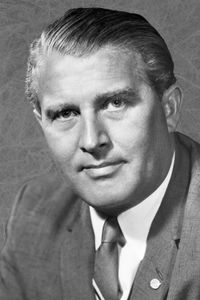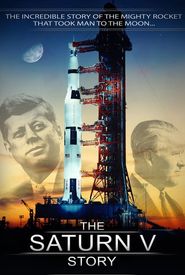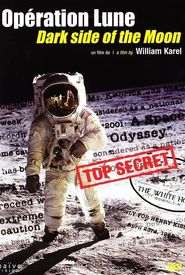Werner Von Braun, a preeminent figure in the realm of rocketry, ascended to the pinnacle of his profession, earning the distinction of being the world's foremost authority on the subject, thereby leaving an indelible and lasting imprint on the annals of space exploration.
Wernher von Braun's life and professional trajectory underwent a significant transformation in the 1930s, a pivotal period that set the course for his future endeavors, when he made the decision to join the Nazi SS, a choice that would have a profound impact on his personal and professional life.
As the esteemed leader of the team responsible for the development of the V-2 rocket, Von Braun played a pivotal role in the creation of a groundbreaking weapon, one that would ultimately go on to launch an astonishing 3,000 times against England and Belgium, during the latter stages of World War II.
His contributions to the V-2 rocket project were instrumental in its success, and his leadership skills and expertise were instrumental in guiding the team towards achieving their objectives.
The V-2 rocket, a technological marvel of its time, was a major achievement in the field of rocketry, and Von Braun's involvement in its development was a testament to his innovative thinking and technical prowess.
The trajectory of Von Braun's life and work was forever changed by his experiences during World War II, and his involvement in the development of the V-2 rocket would have a lasting impact on his legacy.
As the war drew to a close, Von Braun's thoughts turned to the future, and he began to envision a world where his knowledge and expertise could be used for peaceful purposes, rather than military ones.
His post-war career would take him to the United States, where he would go on to play a key role in the development of the Saturn V rocket, which would ultimately take astronauts to the moon.
Von Braun's story is a testament to the power of innovation, perseverance, and the human spirit, and serves as a reminder of the impact that one person can have on the world.
The post-war era saw a significant migration of approximately 1,600 Nazi scientists, including the renowned Werner Von Braun, to the United States as part of Operation Paperclip, a secretive endeavor aimed at facilitating the transfer of German experts to American soil. Von Braun's impressive repertoire of skills and expertise soon made him a highly sought-after individual, and he subsequently joined the United States Army, where he contributed significantly to the development of early ballistic missiles, leveraging his expertise to shape the trajectory of American military technology.
As the passage of time unfolded, the connection between Von Braun and the United States Army gradually dissipated, ultimately leading to his assimilation into the National Advisory Committee for Aeronautics, a prestigious organization that would eventually undergo a transformation to become the National Aeronautics and Space Administration, a renowned agency responsible for advancing the field of space exploration.
Wernher von Braun, a renowned figure in the realm of space exploration, made invaluable contributions to the development of the Saturn V rocket system, a technological marvel designed to support NASA's ambitious manned moon landings. This remarkable rocket played a pivotal role in the success of the Apollo missions, which took place during the late 1960s and early 1970s.
As a pioneer in the field of space exploration, von Braun's work on the Saturn V rocket system solidified his position as a visionary leader, pushing the boundaries of human innovation and achievement. His legacy continues to inspire and motivate new generations of scientists, engineers, and explorers, as they strive to build upon the foundation he laid.
Through his tireless efforts and unwavering dedication, von Braun left an indelible mark on the world of space exploration, cementing his place as a true giant in the field. His remarkable achievements serve as a testament to the power of human ingenuity and the limitless potential of the human spirit.





























